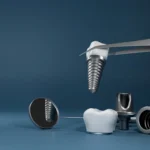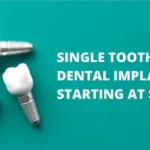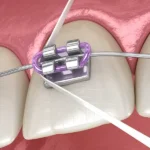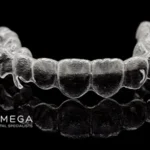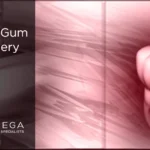Why Do I Need NightGuard?
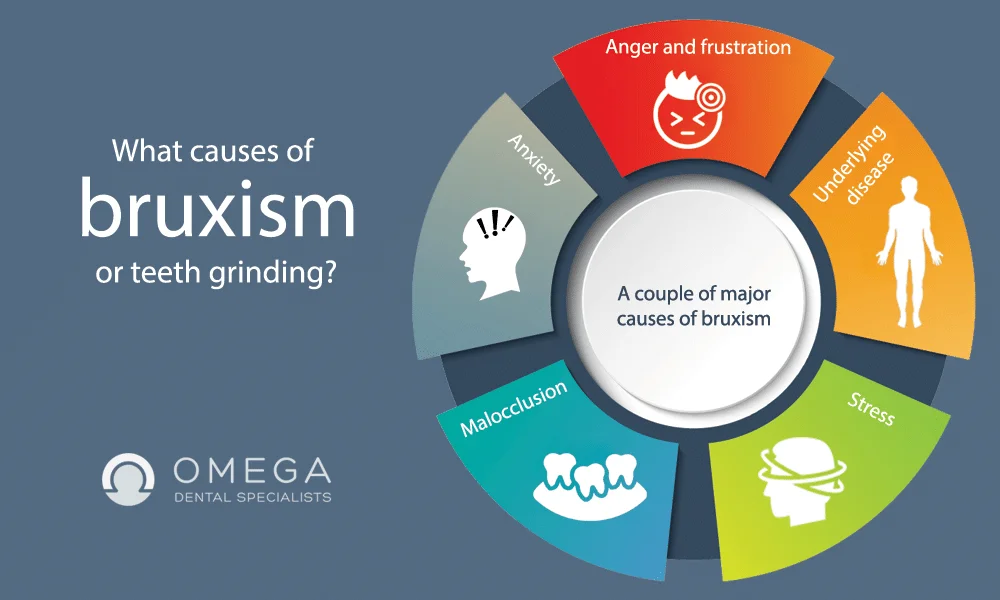
Bruxism (grinding teeth) primarily concerns the horizontal, nonfunctional grinding of teeth by patients. The forces involved are in significant excess of normal physiologic masticatory loads. Bruxism may affect the teeth, muscles, joints, bone, implants, and prostheses. These forces may occur while the patient is awake or asleep and may generate an increased force on the system several hours per day. It is more likely that the grinding of teeth occurs when you sleep, although it can happen at any time of the day if you are stressed, have a new filling, or crown higher than the rest of the teeth (hyper-occlusion) or your bite is abnormal. After a while, the surface of your teeth will wear out. You may have a toothache, mild headache, and pain in the jaw (temporomandibular joint). Your teeth may look more yellow from the wear of the white outer layer.
Not only children but also adults clench their teeth when they get angry or when they are stressed. Children can develop the habit of grinding their teeth unconsciously. The couple finds out about the bruxism because they feel the noise during the night, if the grinding is slight, it can be silent.
Table of Contents
Can I Have Implants If I Grind My Teeth?
A study on bruxing patients with implants showed 80 percent of sleep bruxism occurred during light sleep stages but did not cause problems to their implants. Therefore, patients with bruxism may or may not have obvious tooth wear affecting esthetics; may brux nocturnally, but their bed partners do not know most of the time; rarely have muscle tenderness when they are awake, and are usually unaware of their oral habit. In other words, nocturnal bruxism is sometimes difficult to diagnose.
Clinical research has produced an inconclusive consensus on the definition of bruxism and its relation to implant dentistry. But methods have been developed to protect implants.
How can we protect dental implants in patients with Bruxism?
Effective protection of the implant system can be assisted greatly by the prescription of a hard, occlusal splint (night guard). Clinicians often attempt irreversible occlusal treatments or force the patient to change their lifestyle in an effort to reduce bruxism, but custom-made acrylic guards can achieve the same results.
Adjacent dysfunction and pathologic tooth wear are addressed during the fabrication of the night guard. Achieving mutually protected occlusion within the design of the guard ensures that the implant prosthesis is not subject to the negative phenomena exhibited by bruxing patients. The unconscious pressures exerted in nocturnal bruxism are spread over the entire arch and lessened, rather than being absorbed in a single location.
Once osseointegration is achieved, the predominant factor in implant longevity is the maintenance of applied force. Excessive occlusal pressure must be mitigated or even avoided by the implant. Strength is directly affected by the surface diameter created by the thread characteristics, determining the area available to dissipate force under increased tension.
Patients with bruxism require clinicians to choose the correct thread characteristics in order to create the most surface area. The strongest materials often cannot withstand bruxing, requiring the clinician to plan the final restoration in a manner that removes it from full occlusion during maximum intercuspation. Protection can also be built into the implant by reducing the overall diameter and creating a narrow occlusal table of the restoration so that it rests nearly entirely over the implant, causing the bite forces to be distributed directly through the implant itself. Employing particular design specifications will serve to increase the likelihood of successful implant treatment.
During the delivery appointment, the clinician checks the orthotic in the mouth to ensure proper fit and makes any necessary adjustments. Movements are confirmed and the appliance is adjusted to achieve clinically acceptable, mutually protected occlusion. A follow-up recall appointment a week later is required to reevaluate and adjust the occlusion of the splint.
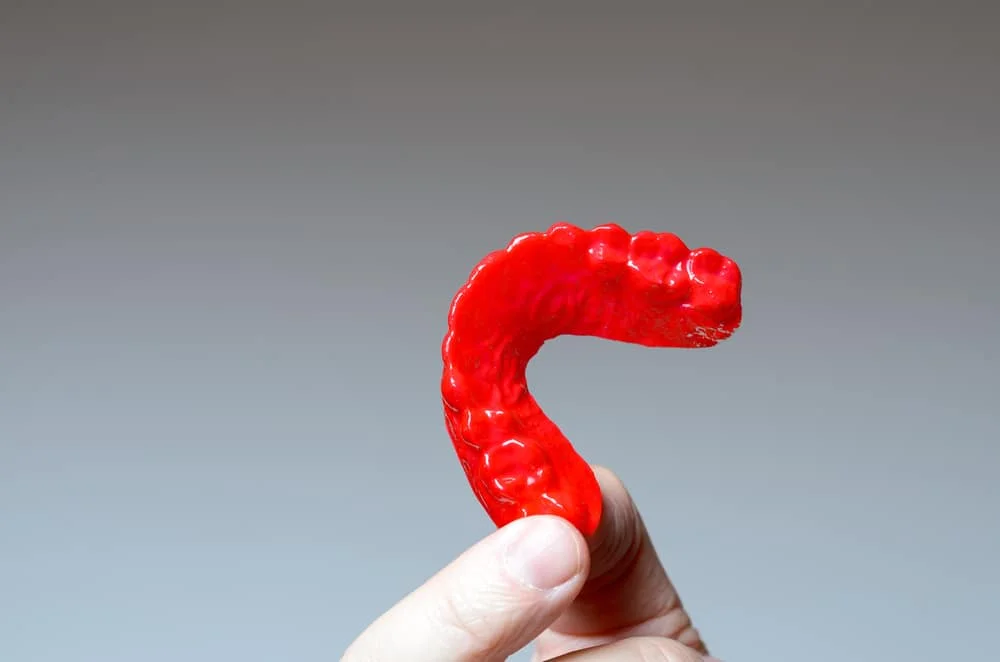
What is a night guard or occlusal guard?
Occlusal guards and proper implant design can negate the excessive forces exhibited by patients with bruxism, greatly improving the chances of optimal restorative outcomes. While current clinical research may not reach a consensus on the effects of bruxism, the practicing clinician must exhibit a working knowledge for when this situation inevitably arises.
Successful outcomes are determined by the integration between bone and implant structure, which can be greatly impeded by undue force. Whereas occlusal guards may be less critical than proper implant design, the construction of both agents with a mind toward protection helps ensure successful treatment.
What causes bruxism or teeth grinding?
Bruxism is a common oral habit. Sleep clinic studies have evaluated nocturnal bruxism and found approximately 10 percent of those observed had an obvious movement of the mandible with occlusal contacts. More than half of these patients had tooth wear affecting esthetics. Only eight percent of these patients were aware of their nocturnal bruxism, and only one-quarter of the patients’ spouses were aware of the nocturnal habit. Muscle tenderness in the morning was observed less than 10 percent of the time. A couple of major causes of bruxism:
- Stress
- Sleep can be interrupted when a person is under stress. These individuals could clench their teeth unconsciously and intermittently.
- Also, anxiety, tension, and emotional stress could be the triggers of bruxism.
- People who suppress anger and frustration often show signs of illness throughout the day.
- Aggressive personality
- Malocclusion
- Underlying disease
There are many problems and diseases that cause bruxism. These diseases include Parkinson’s disease and Huntington’s chorea. These diseases cause the grinding of the teeth diurnal and nocturnal.
Some of the causes of childhood bruxism are shown in the following list:
- Misalignment of the teeth (during the fall of the milk teeth),
- Pain (caries),
- Stress,
- Psychological problems (for example, suppress anger after abuse).
Risk factors causing the appearance of bruxism:
- Incorrect intake of certain medications that cause epileptic seizures,
- An allergic reaction can cause the jaw to close,
- Injuries in the brain,
- Congenital deformities of the jaw,
- Psychological disorders such as anxiety
- High levels of alcohol in the blood
- Excessive consumption of amphetamines,
- Worms (pinworms) and intestinal parasites (cause irritability)
- Trauma (a car accident can cause whiplash).
Causes of nocturnal bruxism in children
- The growth of the jaws,
- Misalignment of the teeth,
- Implant crowns and badly made seals,
- Problems of the temporomandibular joint,
- Stress,
- Inadequate calcium levels in the body.
Symptoms of bruxism and effects on the body
Bruxism is difficult to prevent because it often occurs during sleep. Grinding teeth causes tension in the muscles, tissues and other structures around the jaw.
Many people are not aware that bruxism causes the following symptoms and consequences:
- Numbness or pain in the area of the jaw, jaw, cheekbones, and temples,
- Anxiety,
- Stress,
- Insomnia (difficulty sleeping),
- Depression,
- Nervousness,
- A headache (a migraine),
- Pain in the muscles of the neck,
- Back pain in the upper part (dorsal)
- Injuries on the inside of the cheeks,
- Deformity of the tongue,
- Acute pain in the face,
- Hypersensitivity to heat, cold or to the sweet in the teeth,
- Teeth consumed,
- A toothache,
- Loss of teeth,
- Gums are swollen and inflamed,
- Swelling of the face on the cheeks,
- Ringing in the ears or tinnitus
- Pain in one ear
- A sensation of covered ears,
- Ear reduction,
- Swollen lymph nodes in the neck.
Muscular symptoms
Patients feel tired in the morning because of the continuous grinding of the teeth at night. The maximum biting force of bruxing patients is greater than average. Just as an experienced weight-lifter can lift more weight, the patient constantly exercising the muscles of mastication develops a greater bite force. A man who chews paraffin wax for an hour each day for a month can increase the bite force from 118 to 140 psi (pounds per square inch) within one week. One of the symptoms of bruxism occurs throughout the day, starting in the morning: the person experiences muscle pains in the area of the face and jaw. This pain may also radiate and the individual perceives pain in other parts of the face. The person may suffer from a severe headache in the morning.
Chewing gum, bruxism, and clenching may accomplish the same feat. Eskimos, with a very tenacious diet and who chew their leather to soften it before fabrication of clothing, have maximum bite forces above 300 psi. A 37-year-old patient with a long history of bruxism recorded a maximum bite force of more than 990 psi (four to seven times normal).
Fortunately, the bite force does not continue to increase in most bruxing patients. When muscles do not vary their exercise regimen, their size and function adjust to the dynamics of the situation. As a result, the higher bite forces and muscle size usually do not continue in an unending spiral.
How to stop bruxism?
- Many children do not require any treatment. If the children show a moderate or severe bruxism it is advisable to consult the dentist.
- If the malocclusion causes the problem, the alignment must be corrected. The pain can cause difficulty in chewing.
- Dentists implant the crown to reshape the occlusal surface of the tooth. This treatment does not cure the real problem of bruxism.
- Osteopathy can help solve a mastication problem caused by temporomandibular joint (TMJ) dysfunction.
- Performing meditation exercises and a warm bath before going to bed helps fight stress. Since stress is one of the causes of bruxism, relaxation techniques help to reduce stress.
- Experts advise speech therapy to cure this “bad habit”. The speech therapist recommends physiotherapy exercises and postures to position the jaw correctly with respect to the mouth and avoid the grinding of the teeth.
- A frequent exercise is to push the tongue against the palate, keeping the teeth separated and the lips closed.
- Pharmacological treatment to relax the child is not recommended because of the side effects and because it causes addiction.
- Supplements: The consumption of foods rich in vitamin B, calcium and magnesium. Chewing the calcium tablets before going to bed decreases the chances of unwanted contractions of the jaw muscles.
- It is advisable to take multivitamins daily after consulting the doctor to know which vitamin is useful.
- The use of a mouth guard does not cure the disease, but it helps prevent damage to the teeth.
- In some severe cases, injections are recommended to treat bruxism. Injections cause muscle relaxation to avoid clenching the teeth.
January 30, 2023What to Expect During the Wisdom Teeth Extraction
October 23, 2022Wisdom Tooth Removal Cost
July 26, 2022Should I Have My Wisdom Teeth Removed Before I Get Braces?
July 26, 2022Complete Guide to Wisdom Tooth Removal
September 16, 2021Dental Bone Graft Cost, Materials and Procedure
September 16, 2021Why Do I Need NightGuard?
September 14, 2021Tooth Extraction Healing Time
May 06, 2021What is A Dry Socket?
